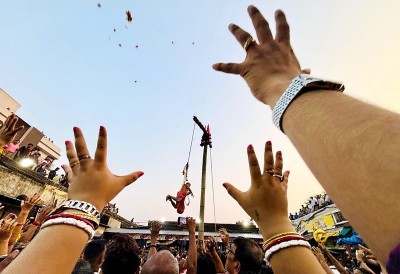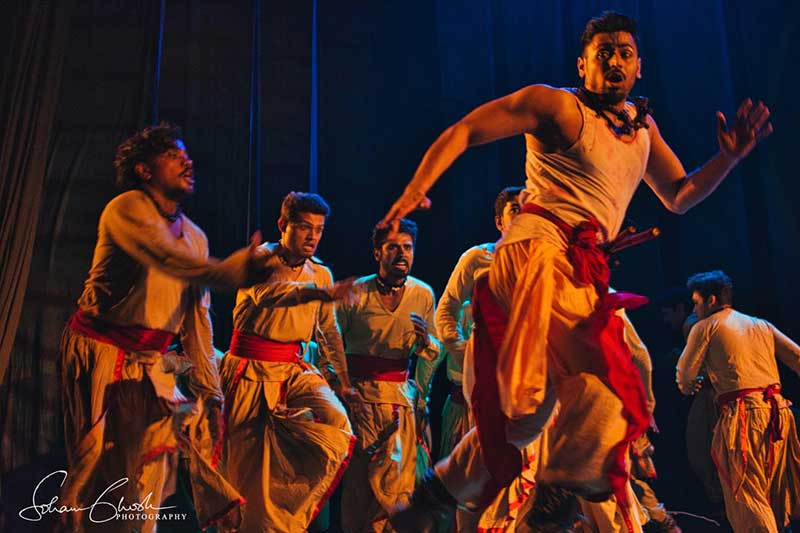 Review
Review
Panchajanya: Nandikar’s conch of success on its 64th birthday
Panchajanya (the conch of Lord Vishnu producing the primeval sound of creation when blown) is about a foreboding, a stigmata and a moral imploding of right and wrong.
In the Vishu Parva of Harivamsa, Lord Krishna in order to pay his gurudakshina to Sandipani Muni entered the depths of the Sea Prabhasa to rescue his only son from the clutches of an evil demon Panchajanya or Shankhasur, who lived in a colossal conch shell.
Krishna successfully slew Panchjanya and took the conch shell for himself and named it after the Demon. Whenever Krishna blew the shell it foreshadowed the death of his next opponent. The Panchajanya symbolised the five elements, and produced the primeval sound of creation. It was blown for the first time to signal the beginning of the battle of Mahabharata.
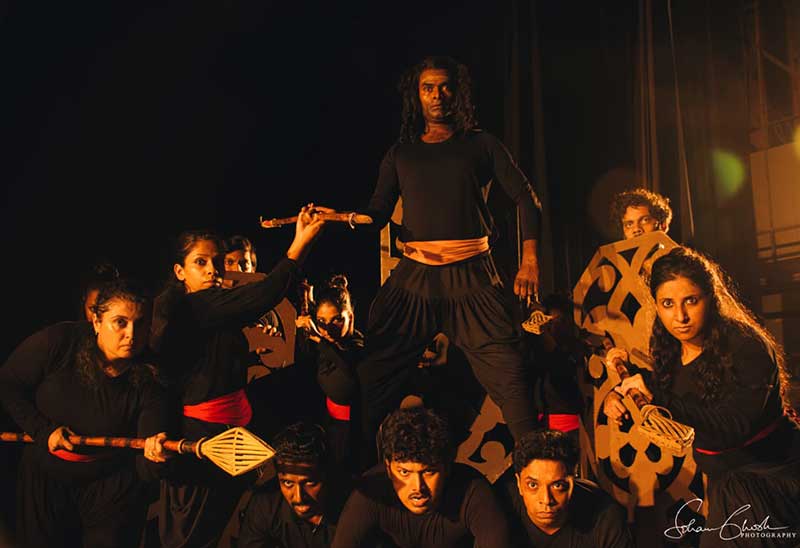
So, when an iconic theatre group Nandikar decides to stage a play ‘Panchjanya’ expectations soar. And when they plan to showcase it on the occasion of the 64th birthday, an anticipation of excellence charges the atoms of the rarified air of the city’s theatre hotspot Academy of Fine Arts.
The cultured and connoisseurs recount among themselves how this was a class act when last staged under the guidance of Late Swatilekha Sengupta in 2012, while the newly initiated into the world of dramaturgy waited wide-eyed for lightning to strike on the stage.
After two hours and 20 minutes of intense chic and sophisticated playacting both the variety come out drenched in the intrigue and conflict within the hardbound covers of morality preached through Mahabharata.
Largely dealing with Mausala Parva, Mahaprasthanika Parva and Harivamsa Parva, the play is a constant flux between the various episodes of Mahabharata based on the basic foundation of lament by Gandhari—wife of Dhritarashtra and mother to 100 dead sons and her eventual cursing of Lord Krishna.
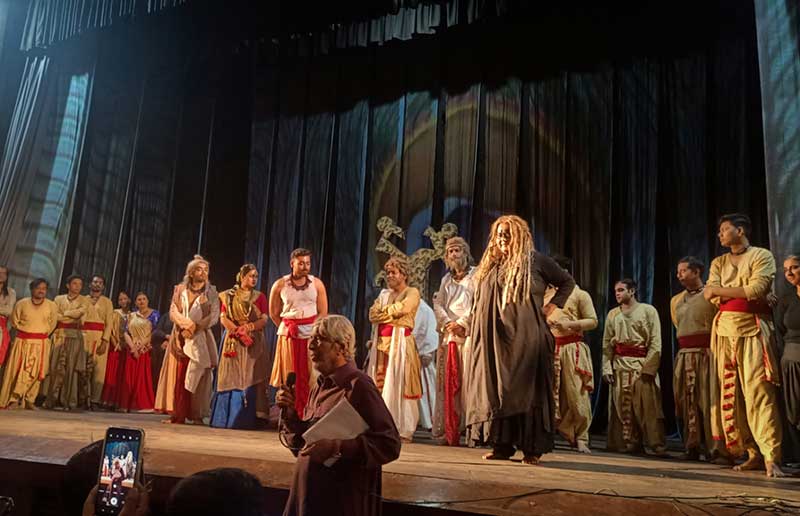
She accused Krishna with treachery and trickery to help Pandavas win and in a fit of fury cursed that much like the Pandavas and Kauravas who fought with each other, the Yadavas too would fight among themselves and perish to the last man.
The Yadava women would also beat their chests and mourn the deaths of their men, just as Vasudeva had filled the lives of Kaurava women with misery. And he would also meet the same fate and die like an ordinary man.
Sohini Sengupta as Gandhari is spectacular, even scary at times, her voice reverberating through the auditorium as she lamented the death of her sons and questioned Krishna’s Dharma.
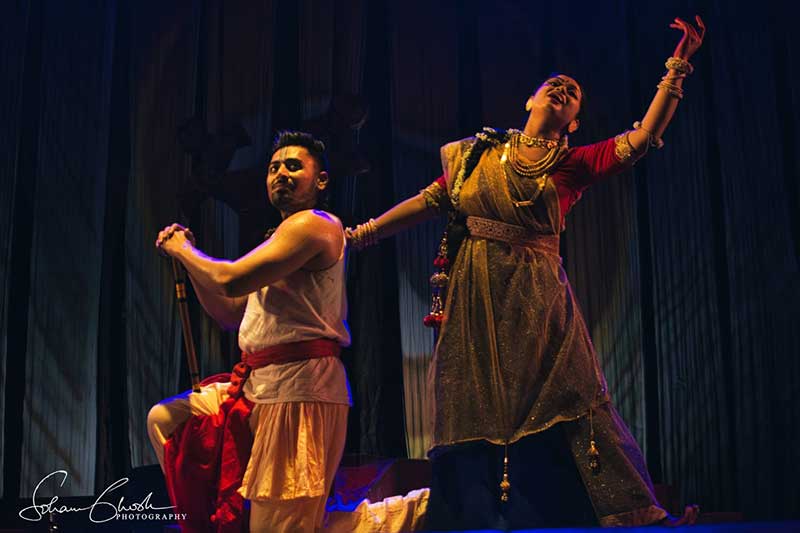
The black costume, the white wig and the black patch over her eyes add to her theatrics as she puts the thin line between right and wrong on the stands and questions the elements of morality against the heady concoction of self-pride and self-righteousness of Lord Krishna.
Saptarshi Maulik as the younger Krishna, filled with a sense of rectitude and correctness, casanova and committed, flirtish and fearless, blows the audience with his athleticism, acting prowess and stage sense, as did the aged Krisha played by Ayan Ghosh, reticent, remorseful and repentant struck by the curse of Gandhari.
Arghya De Sarkar as Balaram, Swajan Srijan as Jarasandha and Sambhunath Sahu as Kangsha were also exceptional. One cannot forget Radha, of course, played by Nibedita Bhattacharya. Her femininity and emoting was a perfect foil to Krishna’s boisterous carefreeness.
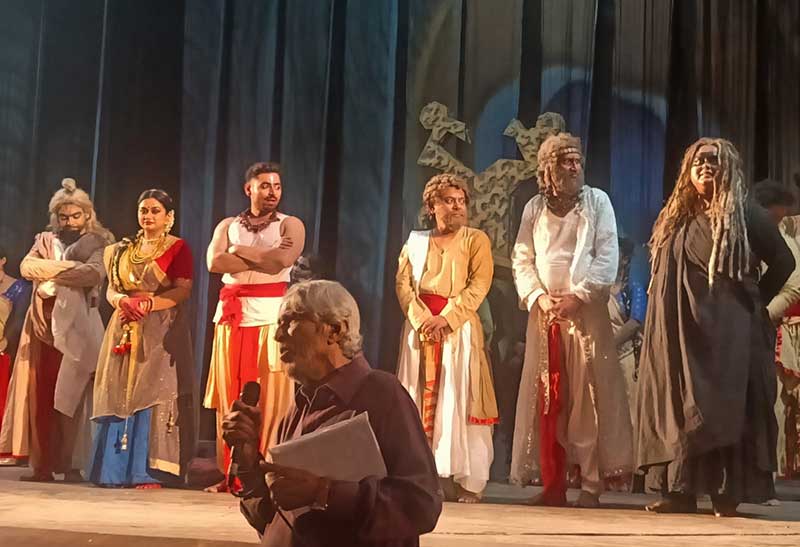
The play is our version of the Broadway with music, dance and acrobatics playing a large part of the storytelling and it was fabulously done by the ensemble cast among whom many were just greenhorns by director Sohini Sengupta’s own admission. Music by Mayukh-Mainak duo and Light by Sadhan Parui did justice to the larger than life acts.
Nandikar has come a long way from 29th June 1960 when the group birthed in the bye-lanes North Kolkata. Now an institution by itself, it certainly left its mark with Panchjanya.
.jpg) (The writer is a senior media professional, academic and independent contributor. The opinion expressed in the review is of the writer.)
(The writer is a senior media professional, academic and independent contributor. The opinion expressed in the review is of the writer.)
Support Our Journalism
We cannot do without you.. your contribution supports unbiased journalism
IBNS is not driven by any ism- not wokeism, not racism, not skewed secularism, not hyper right-wing or left liberal ideals, nor by any hardline religious beliefs or hyper nationalism. We want to serve you good old objective news, as they are. We do not judge or preach. We let people decide for themselves. We only try to present factual and well-sourced news.





